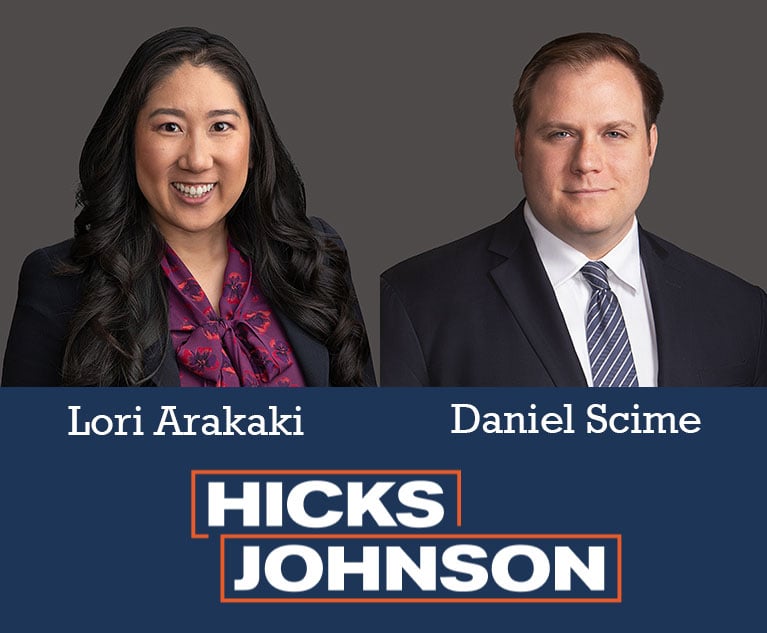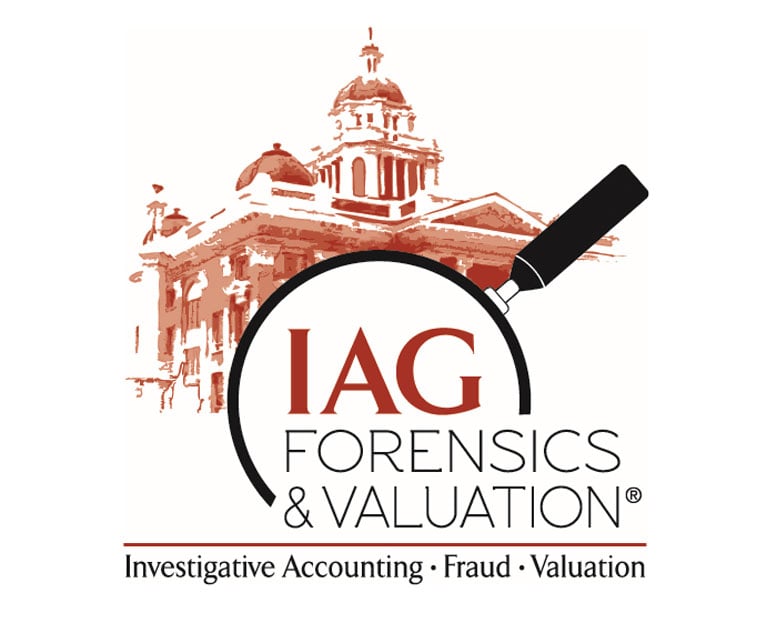7. Meeting Client Expectations
The New Reality, for which law firms are scrambling to equip themselves, is that law firms no longer define their own service levels. Now it's the clients, and they have clear expectation parameters.
April 16, 2021 at 06:03 AM
4 minute read
The original version of this story was published on Lean Adviser
"A client must be clear at the start of the relationship what the ground rules and rules of engagement are to be. This is the same as any relationship and will engender trust from the start that can then be built upon as the relationship grows." — Andrew Garard, Group General Counsel & Director of Corporate Affairs, Meggitt
Arriving at the right outcome for clients has changed.
Buyers of legal services are now a highly sophisticated and connected community. Meanwhile suppliers — law firms — have tried to develop in step, meet demands, and anticipate client needs. They generally succeeded, until the advent of The New Reality. The New Reality, for which law firms are scrambling to equip themselves, is that law firms no longer define their own service levels. Now it's the clients, and they have clear expectation parameters.
What the clients now not only want but insist on, is operational efficiency, effectiveness and transparency. Just like law firms, clients are also starting to acquire technologies, such as legal analysis tools, with algorithms to predict how long a transaction should take, and what it should cost. The shorthand for this extra dimension to our world is 'legal ops.'
You might think that with the best talent, ably supported and resourced, law firms would have covered everything their client could possibly need in The New Reality. You'd be wrong. There is a gap in the lawyer's toolkit and it has to do with client expectations.
Law firms get judged by one factor above all others, how well they meet client expectations. This is hardly surprising, given that it affects how the GC is judged by the business. On any assignment, the client's expectations will go beyond outcome. They will include speed of delivery, reporting and price, working methods and every other aspect of your daily work to meet the expectations. Then come 'softer' issues like transparency, accountability and overall reliability. All these expectations will be perceived through the GC's prism, so it is crucial to understand what good will look like to the GC.
However well you know the client, some expectations will be project specific. This calls for a structured investigation at the engagement stage, not just into anticipated outcomes, but every aspect of service delivery. Then comes reflection. Now that you fully understand what is to be expected of the firm, is it reasonable and can you do it? If the answer is yes, then memorialize the understanding. But if the answer is no, go back and explain why. The client will understand and respect you for it. There is often scope to manage expectations and find alternatives, and the client will appreciate that too.
Just as every successfully delivered assignment is the key to repeat business, so every kick-off discussion is an opportunity to better understand the client, the business and the GC. Why wouldn't you embrace that?
Key Takeaways
The way for law firms to best serve their clients and come out with the right outcome for a matter is to apply principles of legal process management to all of their tasks and communications. By making each step organized, planned out, according to agreed-upon outcomes — complete with client communications — lawyers and their firms will be better prepared to deliver not just the outcomes but also the process that clients expect.
Any lawyer who's ever acquired a repeat instruction from a client must have got a lot of things right with the previous assignment. Among the many ticked boxes the most important was the outcome. This has always been Rule 1 of private practice; if you don't get a good outcome, you don't get another shot.
But now it goes further than that. If it looks like you stumbled upon a good outcome, or got there by chance despite having no clear direction, you still won't get re-hired. Clients still admire talent and they expect commitment, this never changes. But now they want to see how outside counsel apply their talent. They want transparency, and within that they want to see inbuilt efficiency and effective methods, which are clearly focused on solving challenges and getting good outcomes.
In other words, clients want outside counsel to be good project managers, and to do this in a visible way, so they can see effective control and direction at every stage. The requirement is to have such a clear and structured method, that the outcome never appeared to be in doubt. This is what reliability looks like to a client, and this is what gets you repeat business.
NOT FOR REPRINT
© 2025 ALM Global, LLC, All Rights Reserved. Request academic re-use from www.copyright.com. All other uses, submit a request to [email protected]. For more information visit Asset & Logo Licensing.
You Might Like
View All
Longtime AOC Director Glenn Grant to Step Down, Assignment Judge to Take Over
4 minute read
Hours After Trump Takes Office, Democratic AGs Target Birthright Citizenship Order
4 minute read
Hicks Johnson Promotes Lori Arakaki and Daniel Scime to Firm Partnership
2 minute read
IAG Forensics & Valuation is excited to announce promotions at our firm effective 1/1/2025.
1 minute readTrending Stories
Who Got The Work
J. Brugh Lower of Gibbons has entered an appearance for industrial equipment supplier Devco Corporation in a pending trademark infringement lawsuit. The suit, accusing the defendant of selling knock-off Graco products, was filed Dec. 18 in New Jersey District Court by Rivkin Radler on behalf of Graco Inc. and Graco Minnesota. The case, assigned to U.S. District Judge Zahid N. Quraishi, is 3:24-cv-11294, Graco Inc. et al v. Devco Corporation.
Who Got The Work
Rebecca Maller-Stein and Kent A. Yalowitz of Arnold & Porter Kaye Scholer have entered their appearances for Hanaco Venture Capital and its executives, Lior Prosor and David Frankel, in a pending securities lawsuit. The action, filed on Dec. 24 in New York Southern District Court by Zell, Aron & Co. on behalf of Goldeneye Advisors, accuses the defendants of negligently and fraudulently managing the plaintiff's $1 million investment. The case, assigned to U.S. District Judge Vernon S. Broderick, is 1:24-cv-09918, Goldeneye Advisors, LLC v. Hanaco Venture Capital, Ltd. et al.
Who Got The Work
Attorneys from A&O Shearman has stepped in as defense counsel for Toronto-Dominion Bank and other defendants in a pending securities class action. The suit, filed Dec. 11 in New York Southern District Court by Bleichmar Fonti & Auld, accuses the defendants of concealing the bank's 'pervasive' deficiencies in regards to its compliance with the Bank Secrecy Act and the quality of its anti-money laundering controls. The case, assigned to U.S. District Judge Arun Subramanian, is 1:24-cv-09445, Gonzalez v. The Toronto-Dominion Bank et al.
Who Got The Work
Crown Castle International, a Pennsylvania company providing shared communications infrastructure, has turned to Luke D. Wolf of Gordon Rees Scully Mansukhani to fend off a pending breach-of-contract lawsuit. The court action, filed Nov. 25 in Michigan Eastern District Court by Hooper Hathaway PC on behalf of The Town Residences LLC, accuses Crown Castle of failing to transfer approximately $30,000 in utility payments from T-Mobile in breach of a roof-top lease and assignment agreement. The case, assigned to U.S. District Judge Susan K. Declercq, is 2:24-cv-13131, The Town Residences LLC v. T-Mobile US, Inc. et al.
Who Got The Work
Wilfred P. Coronato and Daniel M. Schwartz of McCarter & English have stepped in as defense counsel to Electrolux Home Products Inc. in a pending product liability lawsuit. The court action, filed Nov. 26 in New York Eastern District Court by Poulos Lopiccolo PC and Nagel Rice LLP on behalf of David Stern, alleges that the defendant's refrigerators’ drawers and shelving repeatedly break and fall apart within months after purchase. The case, assigned to U.S. District Judge Joan M. Azrack, is 2:24-cv-08204, Stern v. Electrolux Home Products, Inc.
Featured Firms
Law Offices of Gary Martin Hays & Associates, P.C.
(470) 294-1674
Law Offices of Mark E. Salomone
(857) 444-6468
Smith & Hassler
(713) 739-1250








